Not Like Us: A timeline of Drake’s feud with Kendrick Lamar
A rivalry between two of the world’s biggest rappers has simmered for years, flaring up again in May thanks to multiple surprise tracks
Your support helps us to tell the story
From reproductive rights to climate change to Big Tech, The Independent is on the ground when the story is developing. Whether it's investigating the financials of Elon Musk's pro-Trump PAC or producing our latest documentary, 'The A Word', which shines a light on the American women fighting for reproductive rights, we know how important it is to parse out the facts from the messaging.
At such a critical moment in US history, we need reporters on the ground. Your donation allows us to keep sending journalists to speak to both sides of the story.
The Independent is trusted by Americans across the entire political spectrum. And unlike many other quality news outlets, we choose not to lock Americans out of our reporting and analysis with paywalls. We believe quality journalism should be available to everyone, paid for by those who can afford it.
Your support makes all the difference.One is a chart-dominating artist who pops streaming records as frequently as he does champagne bottles; the other is possibly the greatest rapper of all time, with multiple Grammy wins and a Pulitzer Prize to his name.
Many fans would agree that Drake and Kendrick Lamar operate in entirely different lanes. Drake entertains with summery rap-pop jams such as “One Dance” and “Hotline Bling”, dabbling in trap, dancehall and R&B along the way, while Lamar has asserted himself as a deft lyricist capable of blending street smarts with a literary wit. Yet their once friendly relationship has descended into years of traded barbs and thinly veiled disses, fuelled by fans who clash over which one is the better artist, and finally boiling over into a full-blown feud.
Here’s a look at their relationship over the years.
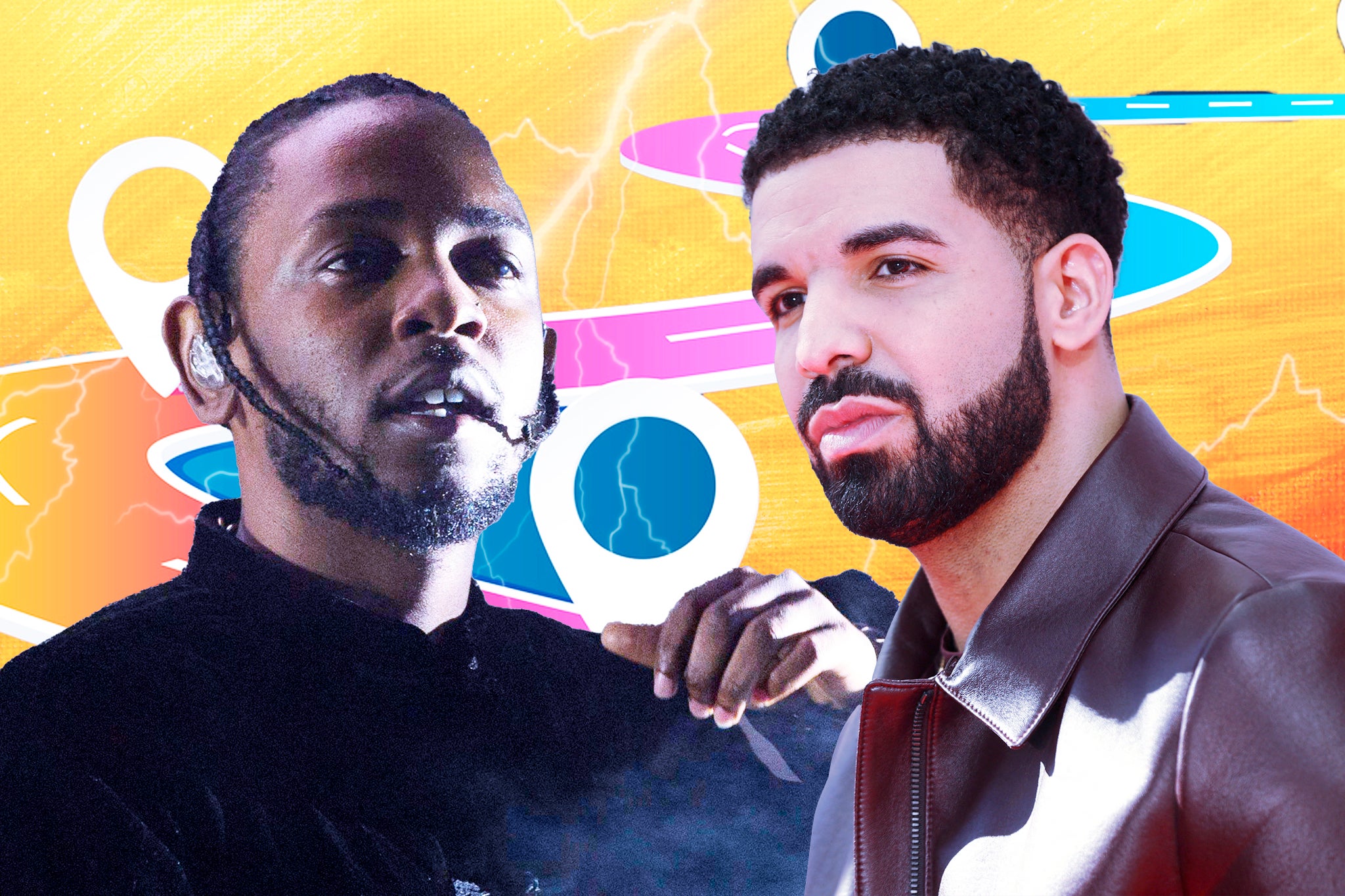
2011 – Kendrick Lamar’s career beginnings and initial friendship
Lamar and Drake were once on relatively friendly terms, with the Canadian artist inviting Lamar out on his Club Paradise headline tour.
Lamar said in an early career interview that he and Drake “clicked immediately”, describing the fellow rapper as a “genuine soul” and revealing that Drake was the first person outside of his immediate team to hear his debut album Section 80. Drake later invited K-Dot to feature on his forthcoming second album, Take Care.
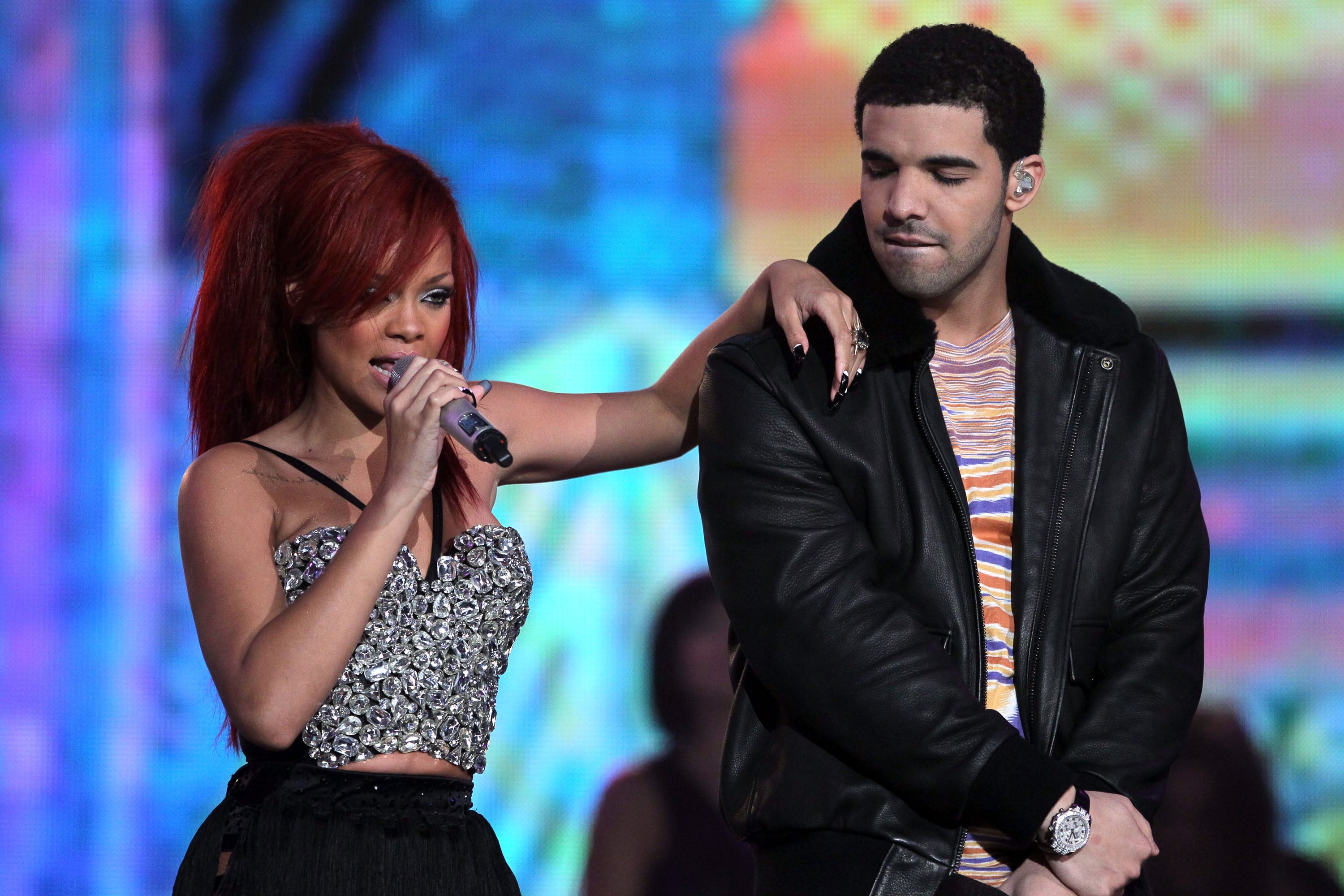
2012 – Kendrick’s star begins to rise, early shots are fired
Around the release of Lamar’s critically acclaimed second album, Good Kid, MAAD City, on which Drake featured, tension appeared to begin brewing between the pair, seemingly in part due to their differing attitudes towards wealth and fame.
Where Lamar tends to avoid sharing details of his personal life on social media, Drake is known for sharing frequent posts about his lavish lifestyle to his millions of Instagram followers, from private jets to couture and luxury cars. Lamar discussed this openly in interviews, hinting that he believed bragging about money and fame was superficial, and his own music tackled deeper matters.
The two also seemed to grow colder towards one another as Lamar began to experience commercial and critical success, scooping major awards and receiving universal praise for Good Kid, MAAD City and being invited to star on tracks by other major artists.
In public, Drake continued to congratulate Lamar for a number of his successes, until 2013, when Lamar dropped a verse on Big Sean’s track “Control” that made it clear he considered himself above other rappers… including Drake.

While rappers such as A$AP Rocky, who was also name-checked, seemed pleased to be namechecked by Lamar at all, believing his competitive nature to be healthy for hip-hop, Drake seemed less enamoured.
Enjoy unlimited access to 100 million ad-free songs and podcasts with Amazon Music
Sign up now for a 4 month free trial (3 months for non-Prime members)
Enjoy unlimited access to 100 million ad-free songs and podcasts with Amazon Music
Sign up now for a 4 month free trial (3 months for non-Prime members)
“Was that real or was that just for the people?” he asked in an interview on Hot 97 after Lamar’s guest verse came out. “Those were harsh words, right? It’s like, you can’t just say that and then see me and be like, ‘Yeah man…’ pretending like nothing ever happened. That’s not real, man.”
Drake doubled down on this stance in a later interview where he implied that Lamar was more about a “moment” than creating bodies of work, questioning whether he would release something that could top Good Kid, MAAD City.
He then released his third album, 2013’s Nothing Was the Same, in which he appeared to take aim at Lamar on “The Language”, rapping: “F*** any n***a that’s talking that s*** just to get a reaction.”
On the same track, he referred to himself as “the kid with the motormouth / I am the one you should worry about.” He also seemed to mock Lamar’s attitude towards wealth, rapping: “N***as downplaying the money but that's what you do when the money down.”
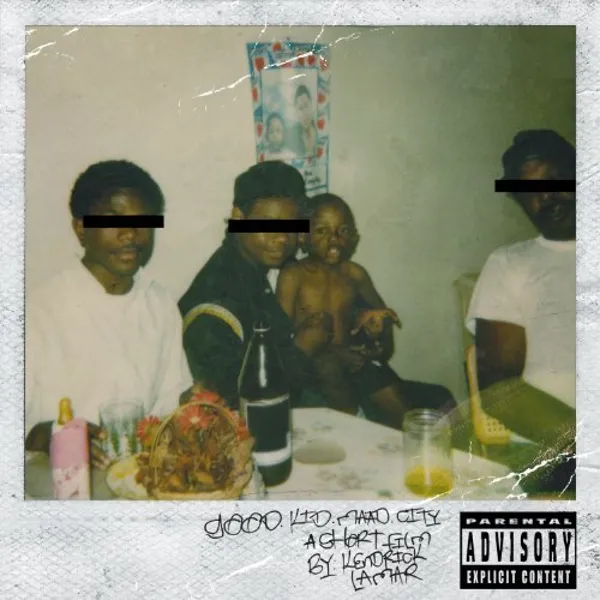
On a recent episode of the What’s the Dirt YouTube show, in which host Matt delves into beefs between prominent hip-hop artists, it was suggested that Drake was being contemptuous of Lamar’s rapid-fire delivery, and felt that his own music had more substance.
“It’s clearly about Kendrick,” he said, citing instances where Lamar appeared to laugh at Drake’s expense during interviews and suggesting K-Dot might have said something behind the “Hold On” singer’s back, which later made its way to him.
Drake’s resentment might have grown after Lamar seemingly mocked Drake for being “sensitive during a freestyle with ScHoolboy Q, Jay Rock, Ab Soul and Isaiah Rashad: “Nothing’s been the same since they dropped ‘Control’/ And tucked a sensitive rapper back in his pyjama clothes.”

Fans were convinced he was talking about Drake, given he’d cited the title of the fellow rapper’s recent album, Nothing Was the Same.
Drake then got personal a few weeks later on Future’s track “S**t”, where he pointed out that Lamar played his biggest shows at the time around his hometown in Los Angeles while supporting Drake on tour in 2012: “Took n***as out the hood like I’m from there / So you know it’s all good when I come there / I hear you talk about your city like you run that / And I brought my tour to your city, you my son there, n***a.”
By the end of 2013, the relationship between the pair had grown distinctly chilly; they appeared on the same track for the last time with A$AP Rocky on “F**kin’ Problems”.
2014 – the public digs grow more frequent, even as Lamar plays down the beef
A few months after Drake appeared on Future’s track, controversy erupted at the Grammy Awards when rapper Macklemore won Album of the Year over Lamar, who was nominated for Good Kid, MAAD City, now widely regarded as one of the greatest hip-hop records of all time.
Macklemore, real name Benjamin Hammond Haggerty, then shared a text on Instagram that he sent to Lamar after the win, in which he confessed that he felt the fellow rapper was “robbed” and that he’d been rooting for Lamar to win.
Drake was unimpressed by this, calling Macklemore out in an interview with Rolling Stone where he said the apology felt “cheap”.
If Macklemore was going to hand out apologies, Drake said, he should have offered one to other nominees: “That s*** made me feel funny,” he said. “No, in that case, you robbed everybody. We all need text messages!”
Lamar and Drake continued to take subtle swipes at one another on guest features, but K-Dot seemed to dismiss fan speculation and suggest they were “digging too far” in a radio interview that aired later that year.
In What’s the Dirt, the host notes that despite this, Lamar continued to make digs about what he perceived to be the difference between his artistry and Drake’s, leaning into the public perception that Drake was a glorified pop artist, rather than a credible hip-hop star skilled in the art of lyricism.
“Comparing these projects makes zero sense,” Matt said, referring to Lamar’s Grammy-winning album To Pimp a Butterfly and Drake’s If You’re Reading This It’s Too Late, both released in 2015.
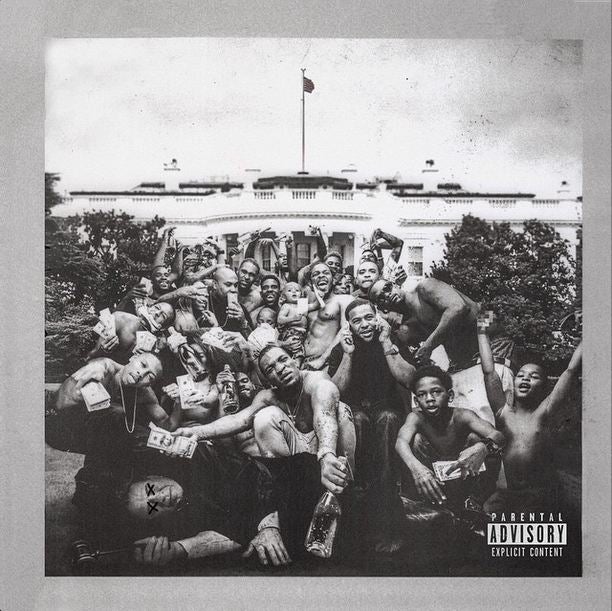
“Drake’s project was great for club DJs, gym playlists, cruising in the car… whereas Kendrick’s album touched on real-world issues, was chanted during protests, and is looked at today as one of the greatest hip-hop albums of all time,” he said.
In summer that year, controversy was sparked after rapper Meek Mill accused Drake of using a ghostwriter for his guest verse on Mill’s recent LP, leading to a number of barbed exchanges in diss tracks.
Drake defended himself against the allegations in September, telling The Fader: “I need, sometimes, individuals to spark an idea so that I can take off running. Music at times can be a collaborative process, you know? Who came up with this, who came up with that – for me, it’s like, I know that it takes me to execute every single thing that I’ve done up until this point. And I’m not ashamed.”
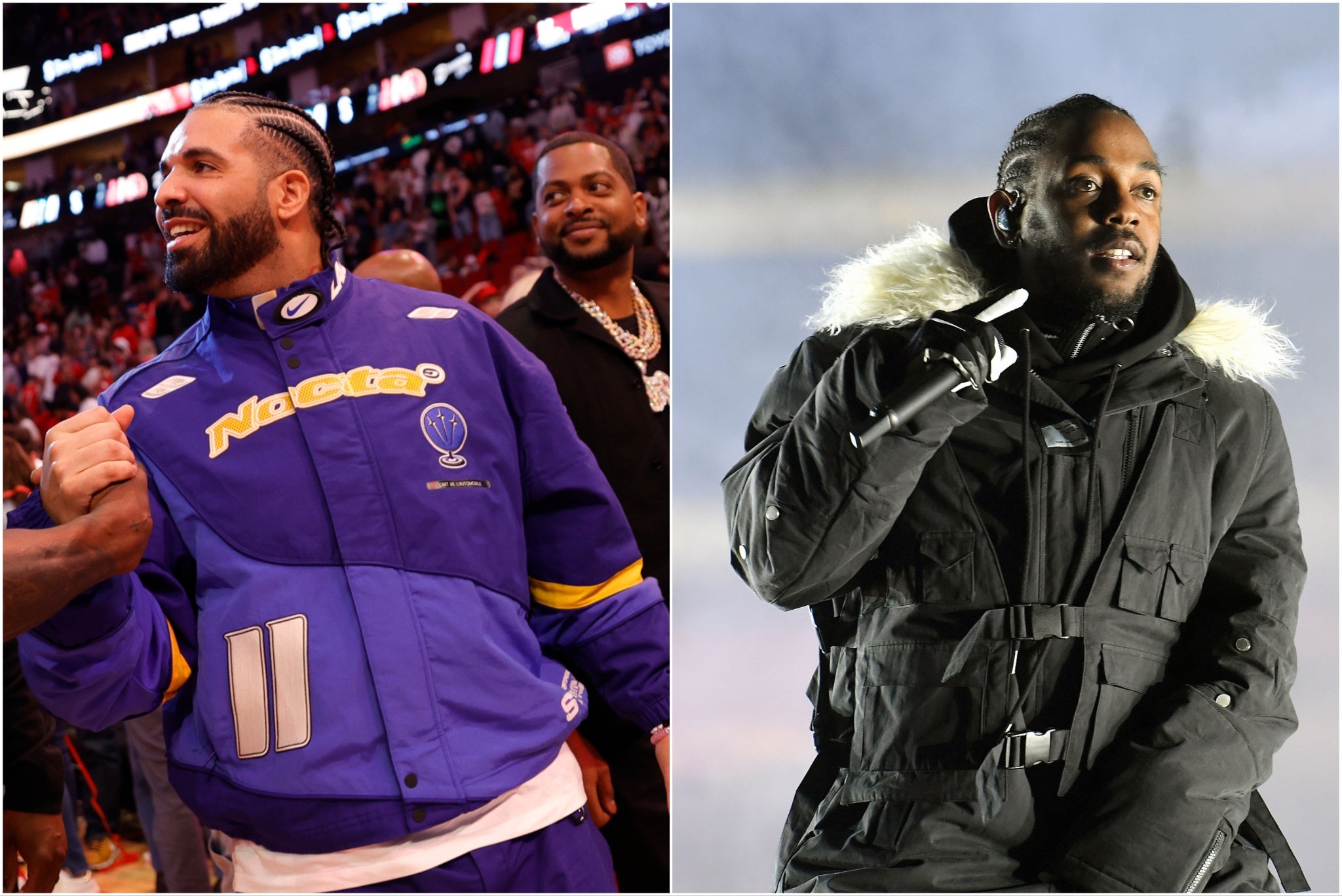
However, this didn’t stop fans scrambling to point out that Lamar had hinted at a fellow rapper using ghostwriters in his hit single, “King Kunta”, which featured on To Pimp a Butterfly: “I can dig rappin’, but a rapper with a ghostwriter? / What the f*** happened? / I swore I wouldn’t tell…”
2016 – Drake dominates sales and streams, but Kendrick is the critical darling
Both artists seemed to cool down as they focused on their respective projects, with Drake dropping his fourth studio album, the Jamaican dancehall-influenced Views, in April 2016. The record spawned a number of major hits including “One Dance”, “Hotline Bling” and “Controlla”, leading to the Canadian star becoming the most-streamed artist of the year. It also resulted in Drake achieving his first ever UK No 1 album, as it also debuted at the top of the US Billboard 200.
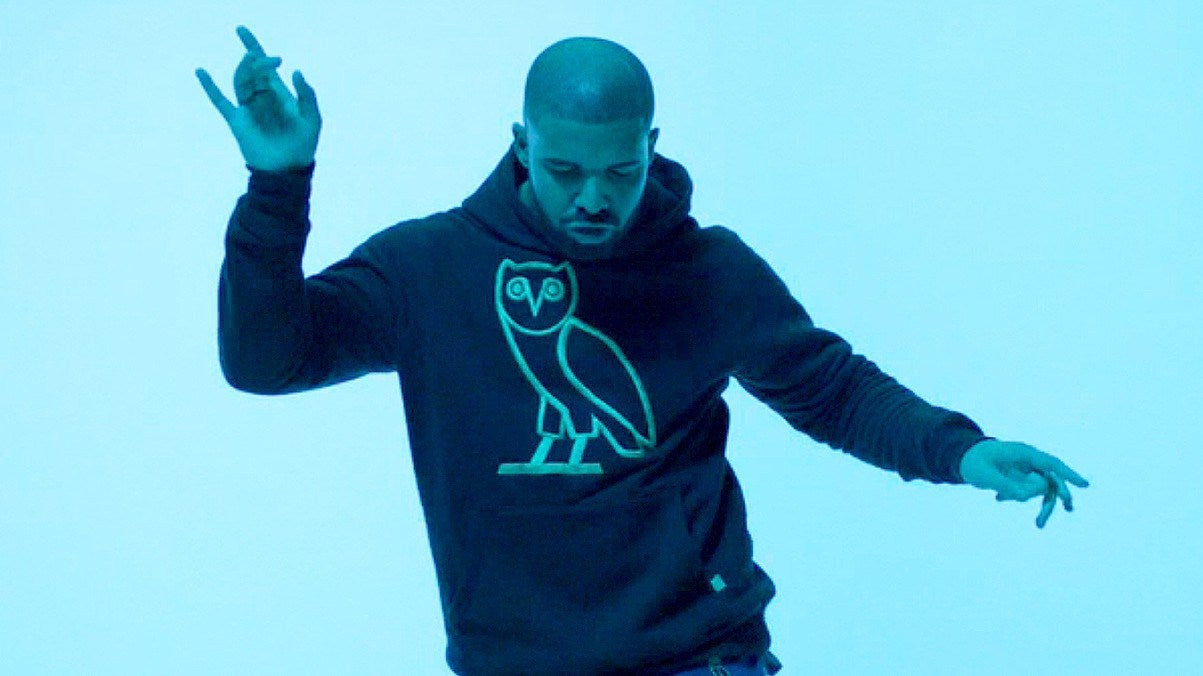
However, Drake couldn’t resist making a few digs around that time, rapping with The Game on his track “100” about the perception of him as a pop artist: “I would have all of your fans if I didn't go pop / And I stayed on some conscious sh**.”
A year later, Lamar released his own fourth album, DAMN, and received considerably more critical praise than Drake had for Views. Where reviews of Drake’s album were mixed, critics lavished praise on DAMN, even directly pitting it against Views. “It’s Mr Lamar’s version of the creeping paranoia that has become de rigueur for midcareer Drake,” Jon Caramanica wrote for the New York Times. “And yet this is most likely Mr Lamar’s most jubilant album, the one in which his rhymes are the least tangled.”
Drake seemed to try and squash any past beef, however, the month Lamar dropped DAMN, posting a comment on the Instagram page of Tidal’s editorial director Elliot Wilson showing that DAMN had out-sold Drake’s More Life mixtape in its opening week by 100,000 copies.
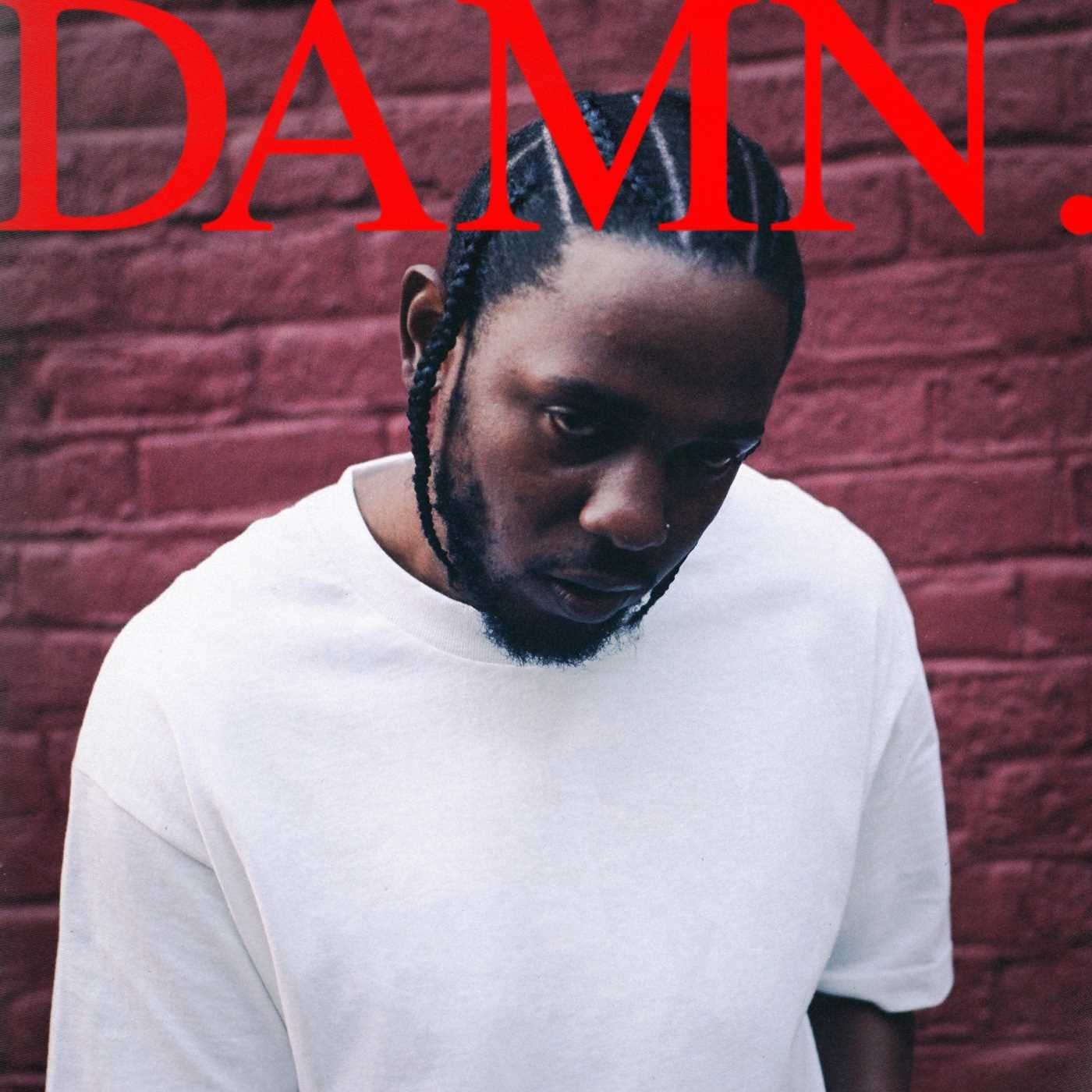
“Amazing to see our music moving!” Drake wrote, also liking a comment by a fan who suggested he, Lamar and J Cole collaborate on a track.
Three years after DAMN’s release, Lamar would become the first rapper in history to win the Pulitzer Prize for music, marking the first time a non-classical or jazz artist had won the distinguished award.
Through this time, however, Lamar goes quiet with new music releases (with the exception of the Black Panther film soundtrack in 2018, which spawned a few extra Grammy nominations including Song of the Year for “All the Stars” with SZA).
Meanwhile, Drake continues to dominate the charts with a string of releases including his Scary Hours EP and his fifth album, 2018’s Scorpion, which included the singles “God’s Plan”, “Nice for What” and “I’m Upset”.
By this point, the public interest in comparing the two artists was so pronounced that even the then-president, Barack Obama, was asked to declare which one he favoured.
2019 – Mr Morale & the Big Steppers
While Drake has seemed to make occasional attempts to hand Lamar an olive branch, the Compton rapper remains tight-lipped unless he’s taking swipes on a track. But after K-Dot took almost five years to release the follow-up to DAMN, his 2022 album Mr Morale & the Big Steppers, Drake apparently couldn’t resist an opportunity to lash out.
“I know it’s summertime, I’ve gotta give you s***!” he told fans during a show for his It’s All a Blur tour in 2023. “I don’t know about these guys that go away for three, four, five years and wanna chill out and all that s***. That’s not me.” Drake then announced the forthcoming release of his 2024 album, For All the Dogs.
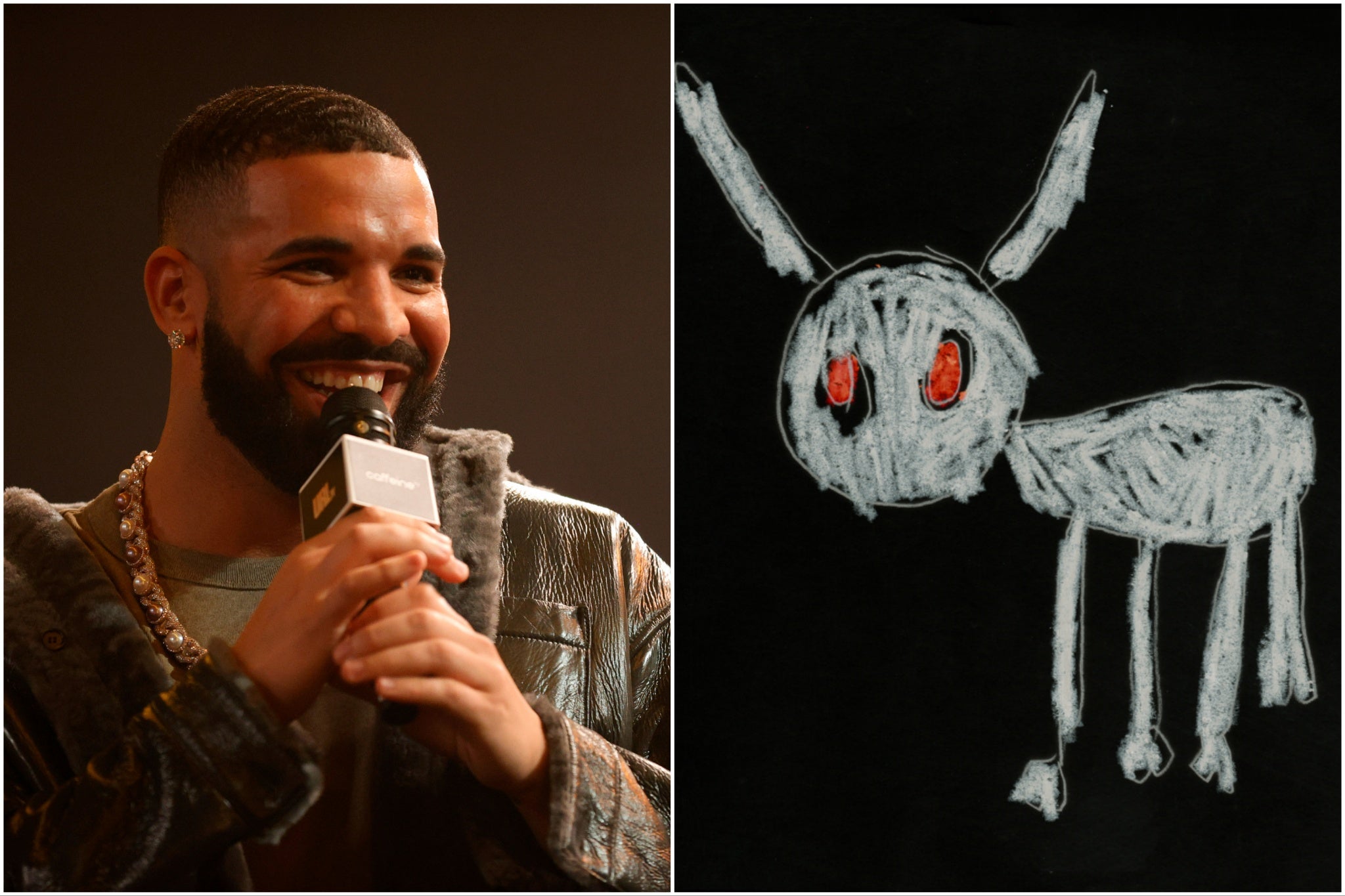
Drake had previously been criticised by some for his relentless string of singles, EPs, mixtapes and studio albums, while Lamar is notorious for leaving long gaps between releases...
2024
...Which brings us to the present day, after Lamar made a surprise appearance on “Like That”, which appears on Future and Metro Boomin’s collaborative album, We Don’t Trust You.
K-Dot appeared to directly respond to J Cole’s verse on “First Person Shooter” from Drake’s For All The Dogs, where Cole raps: “Love when they argue the hardest MC / Is it K-Dot? Is it Aubrey? Or me? / We the big three like we started a league, but right now, I feel like Muhammad Ali.”
“Motherf*** the big three, n***a, it’s just big me,” Lamar raps on “Like That”. “N***a, bum, What? I’m really like that/And your best work is a light pack.”
Drake appeared to brush off Lamar’s diss at a recent concert while on his tour with Cole, in support of It’s All a Blur.
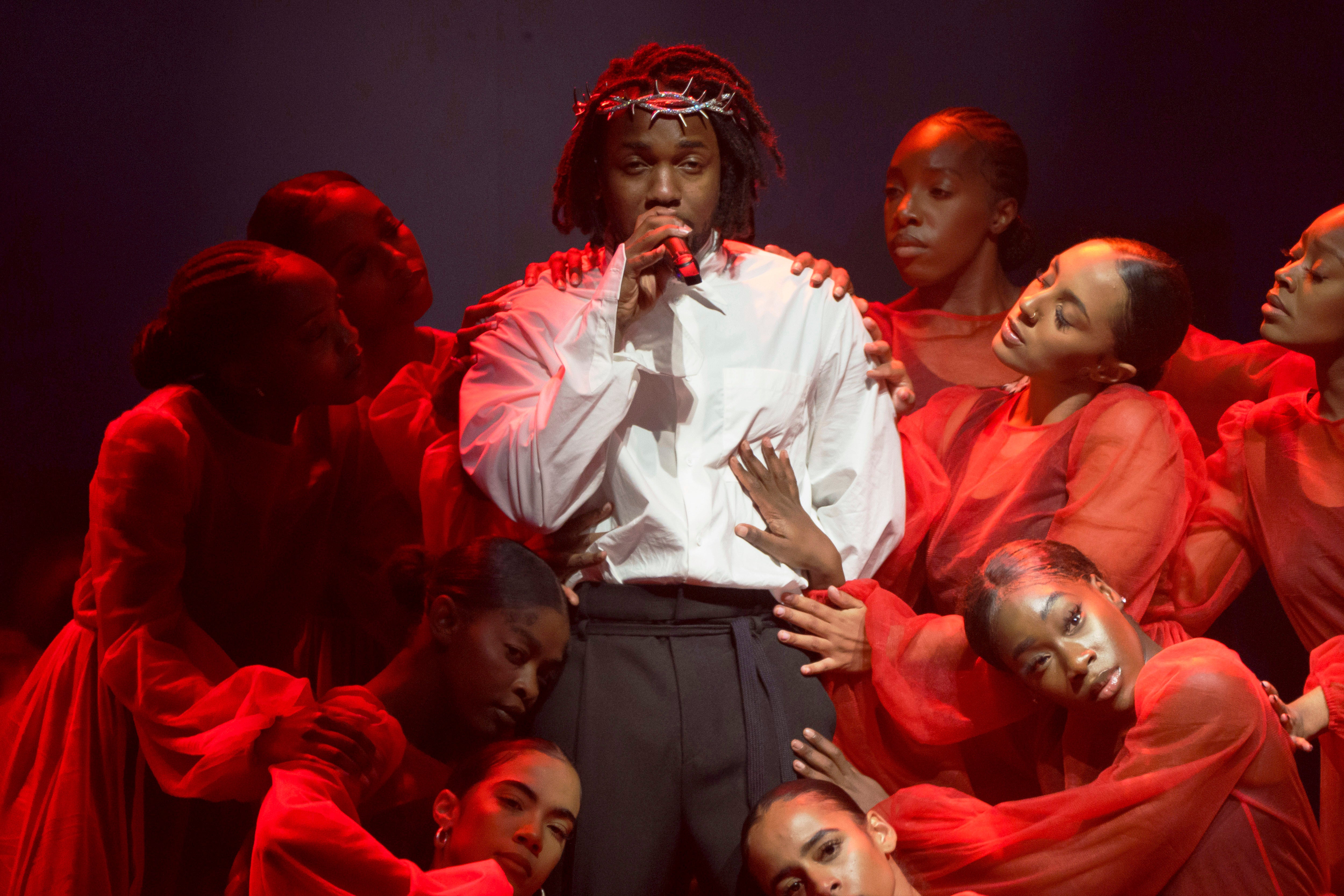
“A lot of people asking me how I’m feeling… listen, the way I’m feeling is the same way I want you to walk out of here feeling tonight about your f***ing self,” Drake told his audience, footage shared to social media on 25 March shows.
“Because you know how I’m feeling? I got my head up high, my back straight, I’m 10 f***ing toes down… and feeling like anywhere else I go… and I know no matter what, there’s not a n**** on this Earth that can ever f*** with me in my life,” he shouted. “And that’s how I want y’all to walk out of here tonight…”
“But,” he continued, “you know, you can get yourselves gassed up, riled up and move towards the future… Sometimes you’ve got to acknowledge the mistakes you’ve made in the past… right? So that’s what I want you all to do. Everybody in here.”
Lamar turned to openly naming Drake in his track “euphoria”, seemingly a nod to Drake’s role as a producer on the hit HBO teen drama, which he dropped on a random Tuesday, 30 April.
The six-minute track sees Lamar open fire on Drake’s racial identity, alleged use of ghostwriters, and recent remarks and behaviour that have led to accusations of misogyny.
One widely discussed moment on the track has been linked to a notorious interview with late rapper DMX. Asked whether he liked Drake in the interview, he simply said, “No.”
Pushed to elaborate, he said: “I don’t like anything about Drake. I don’t like his f***ing voice, I don’t like nothing he talks about. I don’t like his face. I don’t like the way he walks. Nothing. I don’t like his haircut.”
Lamar echoes this as he raps: “I hate the way that you walk, the way that you talk/ I hate the way that you dress/ I hate the way you sneak diss, if I catch flight, it’s gon’ be direct.”
In other searing lines, Lamar dismisses rumours he has been looking for “dirt” on Drake: “Why would I try to call around and try to get dirt on you? You think my life is rap? That’s ho s***. I got a son to raise. But I can see you don’t know nothing ‘bout that,” he raps.
The bars hark back to the now-infamous diss track from US rapper Pusha T, “The Story of Adidon”, which revealed that Drake had fathered a son with French former adult actor Sophie Brussaux. Drake confirmed he had a son, Adonis, a month later when he released his fifth album, Scorpion.
Just a few days later and before Drake had properly responded, Lamar dropped another incendiary track, “6:16 in LA”, on his Instagram. The title is once again pointed as it nods to a favoured theme in Drake’s work, seen in songs such as “9am in Dallas”, “8am in Charlotte” and “4pm in Calabas”.
Fans have also noticed that 6/16 happens to be both Father’s Day and Tupac Shakur’s birthday. In another master stroke, the track was produced by Sounwave and Jack Antonoff, the latter best known for his collaborations with pop titan Taylor Swift.
Drake’s last diss against Lamar was “Taylor Made Freestyle”, in which he mocked Lamar for supposedly using his collab with Swift on 2016’s “Bad Blood” to gain mainstream popularity.
With Antonoff, Lamar has ensured that his latest track is, in fact, “Taylor Made”.
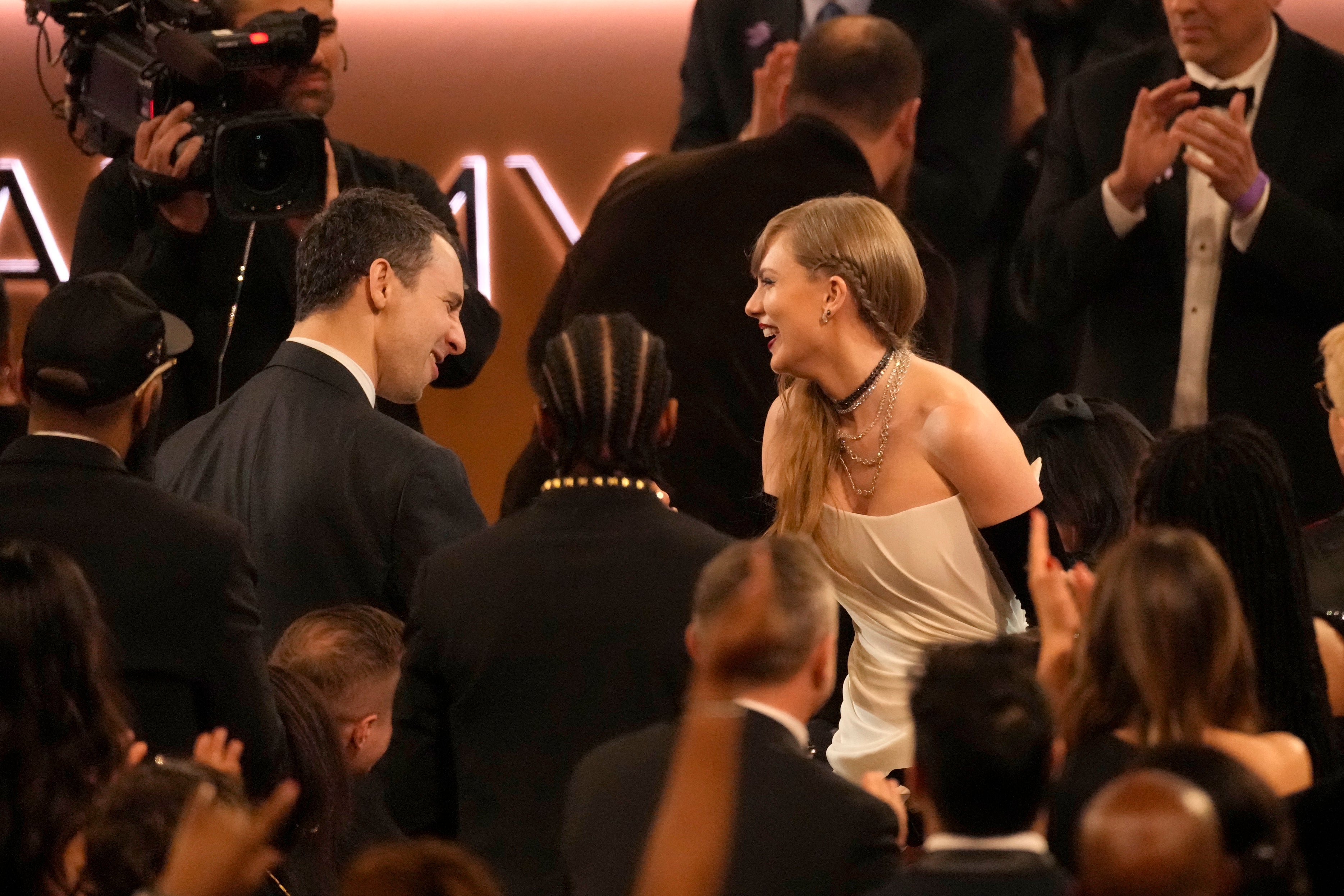
Over a lush, mellow sample of Al Green, he regales listeners with the things he is thankful for before he turns to Drake.
“Are you finally ready to play Have You Ever? Let’s see/ Have you ever thought that OVO was working for me?/ Fake bully, I hate bullies, you must be a terrible person/ Everyone inside your team’s whispering that you deserve it,” he raps.
Then, Lamar goes darker as he tells Drake he has moles in his camp, and that the people he views as close allies are actually working against him: “No, you can’t sleep/ These images trouble you/ No, the wires in your circle should puzzle you/ If you were street smart then you would have caught that your entourage is only to hustle you/ A hundred n****s that you cut on salary/ And 20 of ‘em want you as a casualty/ And one of them is next to you...”
On Saturday (4 May), the Canadian artist released “Family Matters”, made up of three parts, in which he accuses Lamar’s pro-Black activism of hypocrisy. In the track he also accuses him of alleged domestic violence, and of “begging” the Tupac estate to sue Drake for his use of AI versions of the late rapper in a diss track.
“You the Black messiah wifin’ up a mixed queen,” he says referring to Lamar’s childhood sweetheart and fiancée, Whitney Alford who is of mixed heritage.
He denied ordering a cease and desist on Lamar, insisting such an order “is for h*es”. He raps: “You called the Tupac estate and begged ‘em to sue me and get that s*** down.”
In perhaps his most controversial lyric, heard over the end of the song as the music tails off, he adds: “They hired a crisis management team, to clean up the fact that you beat on your queen. The picture you painted ain’t what it seems.”
But Lamar hit back within minutes, releasing “Meet The Grahams”his third diss track this week, in which he accused the rapper of harbouring a secret daughter, and of having a series of addictions to gambling, alcohol, drugs, sex, and spending.
“You got gambling problems, drinking problems, pill-popping and spending problems, bad with money, whore house. Therapy’s a start,” he rapped.
“You lied about your son, you lied about your daughter, huh, you lied about them other kids that’s out there hoping that you come.”
The “Humble” rapper released a new track “Not Like Us” via YouTube on Sunday (5 May). The song has racked up over 10 million views in nearly as many hours. It features an aerial image of Drake’s mansion with target symbols within.
In his new song, “Not Like Us”, the “Humble” rapper called Drake a “certified pedophile” as he made multiple references to his alleged interactions with younger women.

“Say, Drake, I hear you like ‘em young,” the 36-year-old rapper began, adding that he would struggle in jail on account of his interest. “You better not ever go to cell block one.”
He went on to mock the “God’s Plan” artist’s studio album Certified Lover Boy as he taunted, “Certified Lover Boy? Certified pedophiles.”
The song was released on YouTube in the early hours of Sunday morning (5 May). The artwork features an aerial shot of Drake’s mansion with sex offender targets overlaid.
Drake responded quickly with a new song titled “The Heart Part 6,” referring to Lamar’s ongoing, five-part single series “The Heart” that he began in 2010.
“And we know you’re dropping 6 mins after so instead of posting my address you have a lot to address,” he wrote on Instagram.
On the track, Drake shuts down the story about him having a secret daughter, claiming that he and his team planted the fake story on purpose.
“The Pulitzer Prize winner is definitely spiralin’,” Drake started off. “The ones you getting you’re stories from, they all clowns/I am a war general, seasoned in preparation/ My jacket is covered in medals, honor and decoration/You waited for this moment, overcome with the desperation/We plotted for a week and then we fed you the information/A daughter that's 11 years old, I bet he takes it,” he rapped.
Drake went on to deny Lamar’s claims that he pursued underage women, writing: “I never been with no one underage, but now I understand why this the angle that you really mess with.”
“Just for clarity, I feel disgusted / I’m too respected / If I was f***** young girls, I promise I done been arrested / I’m way too famous for the shit you just suggested, but that’s not the lesson / Clearly there’s a deeper message / Deep cuts that never healed and now they got infected,” Drake rapped.
24 May 2024

Lamar has yet to respond to Drake’s latest diss, suggesting he might be satisfied with the fact that “Not Like Us” was, at the time of writing, riding at the top of the US Billboard chart and, as far as his fans were concerned, the final nail in the coffin for Drake.
Drizzy, however, apparently wasn’t done. On 24 May he appeared on Sexyy Red’s “U My Everything”, from her new project In Sexyy We Trust. On the track, he raps over Metro Boomin’s “BBL Drizzy” beat, which the producer released online and told followers to make their own version of the song.
Metro previously featured on Kendrick’s early diss “Like That” in March. The “BBL Drizzy” title alludes to rumours that Drake underwent a “Brazilian Butt Lift” surgery.
“Me and the surgeon got history / I changed a lot of girls’ lives for real, they need a new body, they hittin’ me,” Drake raps on Sexyy Red’s song, as the beach switches to Metro’s “BBL Drizzy.”
“BBL Drizzy, they want a new body, they ask me for it / The last one drunk, he did it for free ’cause I sent over so many passports for him, for real.”
Has the beef come full circle?
5 July 2024
Lamar rang in Independence Day by releasing the music video for his chart-topping “Not Like Us” track.
Coming less than a month after the Compton rapper performed the song six times at the Pop Out concert on Juneteenth, the music video takes multiple shots at Drake and his OVO label.
“Not Like Us” starts off with a shot of Lamar doing pushups on cinder blocks, a reference to Drake’s “Push Ups” and a callback to when the photo of Lamar working out Drake used as part of the song’s rollout.
Also making an appearance is Lamar’s partner Whitney Alford and their two children, a callback to Drake’s “Family Matters” in which he accused Lamar of alleged domestic violence and his longtime collaborator and “Not Like Us” director Dave Free of being the father of one of Lamar and Alford’s children.
The most striking dig, however, is all the owl imagery, the bird associated with Drake’s OVO label.
One scene features Lamar hitting an owl piñata, with a disclaimer at the bottom reading, “No OVHoes were harmed during the making of this video”, and the video’s final shot is of an owl in a cage.
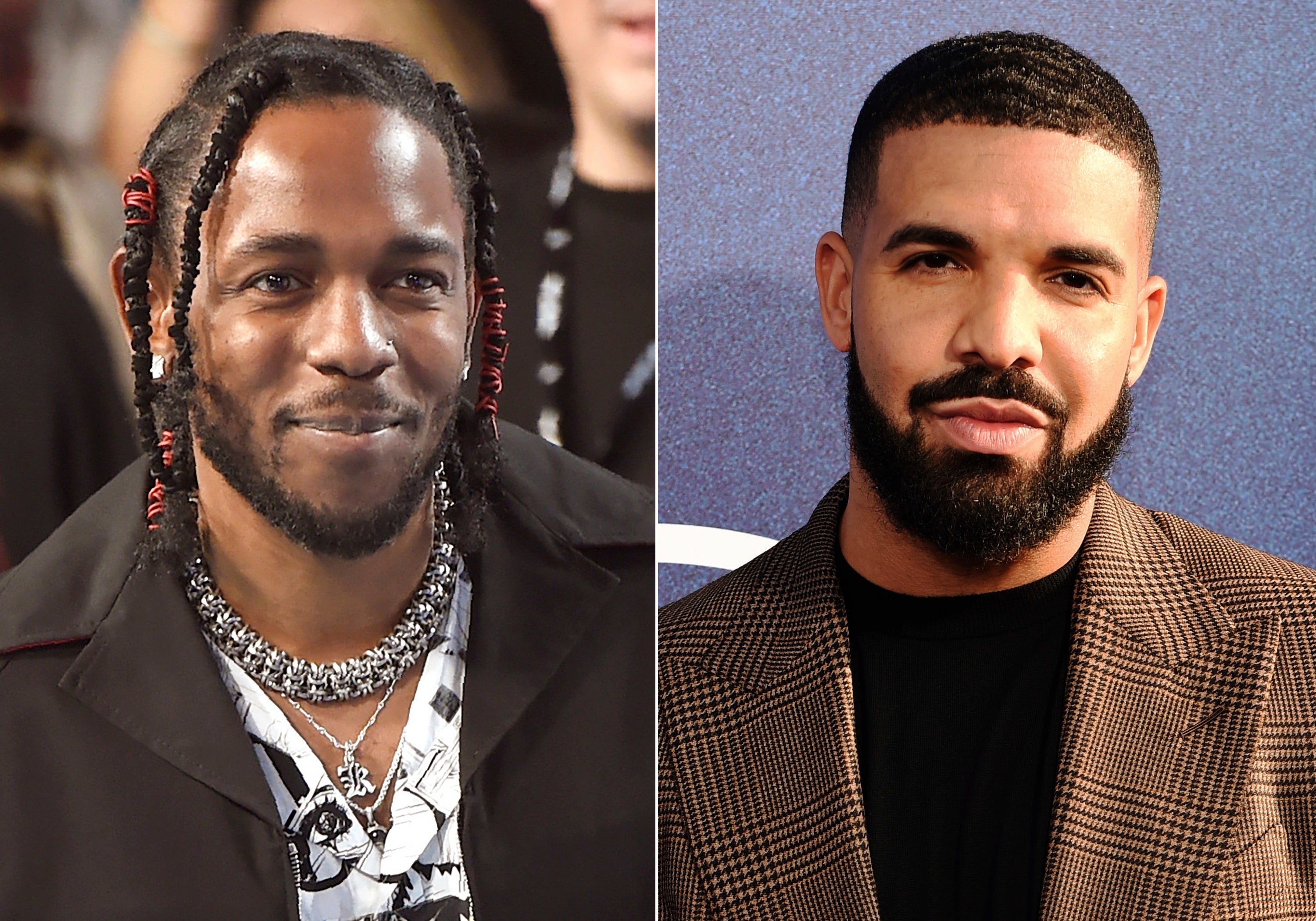
In what seems to be an unprecedented move, Drake files two separate legal actions against Universal Music Group and Spotify, as he accuses UMG, the owner of his label Republic Records, of artificially inflating streams of “Not Like Us”.
In allegations that UMG branded “offensive and untrue”, the filing said that UMG “launched a campaign to manipulate and saturate the streaming services and airwaves with a song, ‘Not Like Us’, in order to make that song go viral, including by using ‘bots’ and pay-to-play agreements.”
It said the company and streaming giant Spotify “have a long-standing, symbiotic business relationship” and alleges that UMG offered special licensing rates to Spotify for the song.
The petition also accused UMG of firing employees seen as loyal to Drake “in an apparent effort to conceal its schemes”. Suffice to say, many in the hip-hop community are unimpressed.
[Lamar][ said squabble up, not lawyer up,” Charlamagne Tha God jokes on social media.
Grammy-nominated artist Rapsody, who featured on Lamar’s critically adored 2015 album To Pimp a Butterfly, tweets: “Legal action over losing a rap beef. My my my. Not like us at all. #Cultureovereverything.”
On his podcast, rapper Joe Budden doesn’t hold back, calling Drake “selfish and manipulative” in an expletive-laden rant.
Despite his claims about Spotify and UMG, Drake breezes into the number two spot as the biggest global artist of the year on the streaming platform, after Taylor Swift who claims the top spot.

Join our commenting forum
Join thought-provoking conversations, follow other Independent readers and see their replies
Comments